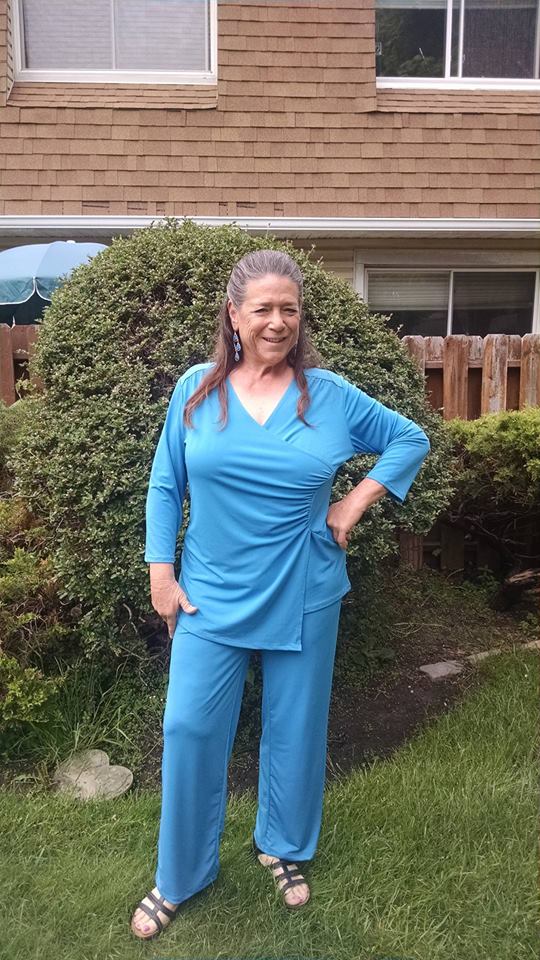Brown Bookshelf Authors Pledge to Support Kids, Solace in Poetry, and More
Zadie Smith’s new novel to be adapted for television; an interview with poet Jericho Brown; fiction writer Garth Greenwell on James Baldwin’s influence; and other news.
Jump to navigation Skip to content
Zadie Smith’s new novel to be adapted for television; an interview with poet Jericho Brown; fiction writer Garth Greenwell on James Baldwin’s influence; and other news.
Joan Gerstein, originally from New York, has lived in California since 1969. A retired educator and psychotherapist, Gerstein has been writing poetry since elementary school, and her writing is featured in multiple San Diego publications as well national and international periodicals. She has volunteered to teach creative writing to incarcerated veterans at the county jail for almost two years and finds it stimulating and extremely rewarding. She has led the workshop for veterans at the Vista jail for six years. Her poetry has been published in Tidepools, Magee Park Poets Anthology, A Year in Ink, Summations, and the San Diego Poetry Annual. She served as the editor of the special Veteran's Section of the San Diego Poetry Annual 2015-16. San Diego Entertainment & Arts Guild partnered with Gerstein recently for a series of P&W–supported veteran workshops.
 What makes your workshops unique?
What makes your workshops unique?
The veterans are in a specially designed program called Veterans Moving Forward and are required to participate in all classes including my creative writing workshop. As such, the men have a wide range of writing skills and interest in the writing process. There is also much fluidity because new participants enter weekly and some depart. I offer a combination of workshops such as poetry, memoir, fiction writing, and if there are requests, classes focused on grammar and sentence and paragraph structure. I also offer my editing, typing, and submission services for those who either wish to enter a contest or are writing something of which they want my feedback. Because they are currently incarcerated and have little access to computers, I meet individually with those men, edit and type up their material, get their approval of final product, and if relevant, submit their entries to various periodicals and veteran anthologies.
What techniques do you employ to help shy writers open up?
Attending the workshop is mandatory but participation varies. I offer a vast number of different exercises to ensure that everyone can hopefully respond to at least some. Sharing of work with the group is voluntary. I often suggest that men work in pairs or groups to allow more reserved men to participate without undue attention. While they are doing assignments, I make a point of walking around the room and working individually with men who rarely share with the group.
What has been your most rewarding experience as a teacher?
The men are extremely appreciative as a group and individually. I look forward to and thoroughly enjoy my weekly workshops and feel especially rewarded when I work individually with the writers, and their submissions are accepted.
What affect has this work had on your life and/or your art?
I’m not sure this has affected my work except as possible subject matter to use in my writing, however the experience has enriched my life and given me a greater understanding of the challenges facing discharged military. My students range from men in their young twenties to veterans of the Vietnam War, of every race and background, from all over the United States as well as foreign countries. I have definitely gained a greater appreciation of their sacrifices and challenges.
What are the benefits of writing workshops for veterans?
This is a creative outlet for many. For men who already enjoy writing and do it regularly, it is an opportunity to hone their craft and a showcase for them to share their material. If they want, I work with the men individually to fine-tune their writing. I offer several opportunities for the men to submit poetry and prose to various contests or veteran publications. For all the men, I hope to expose them to various styles of writing as well as many writers. For example, I may read excerpts from A Place to Stand by Jimmy Santiago Baca, so the men can see that anyone can overcome odds including incarceration, and even become a great writer. The various exercises we do, individually and in small and large groups, encourage critical thinking. Most participants, even those that insist they “can’t write,” will find some success and surprise themselves.
Photo: Joan Gerstein Photo credit: Joan Gerstein
Major support for Readings & Workshops in California is provided by the James Irvine Foundation and the Hearst Foundations. Additional support comes from the Friends of Poets & Writers.
On retiring the term “graphic novel”; post-election reading list; the “Windshield Poet”; and other news.
Oldest-known stone carving of Ten Commandments sells at auction; Medieval book curses; celebrating Native American author James Welch; and other news.
Excerpts from Bad Sex in Fiction award contenders; biography in the age of Twitter; 1935 Sinclair Lewis novel that may have predicted the 2016 election; and other news.
Poets Nikky Finney and Donika Kelly in conversation; Dan Chiasson profiles poet Ishion Hutchinson; Dr. Seuss estate sues over Seuss-Star Trek “mashup” book; and other news.
Celebrity-led digital book clubs; an interview with National Book Foundation director Lisa Lucas; Walter Benjamin’s sonnets; and other news.
The importance of public libraries; director Pablo Larrain on his Pablo Neruda biopic; poet Lynn Melnick on activism and writing; and other news.
The unknown poems of Johnny Cash; funny books to read this fall; essayist Belle Boggs on motherhood and fertility; and other news.
Books to help understand Trump’s win; illustrations of bookstores around the world; contemporary Thai literature in translation; and other news.